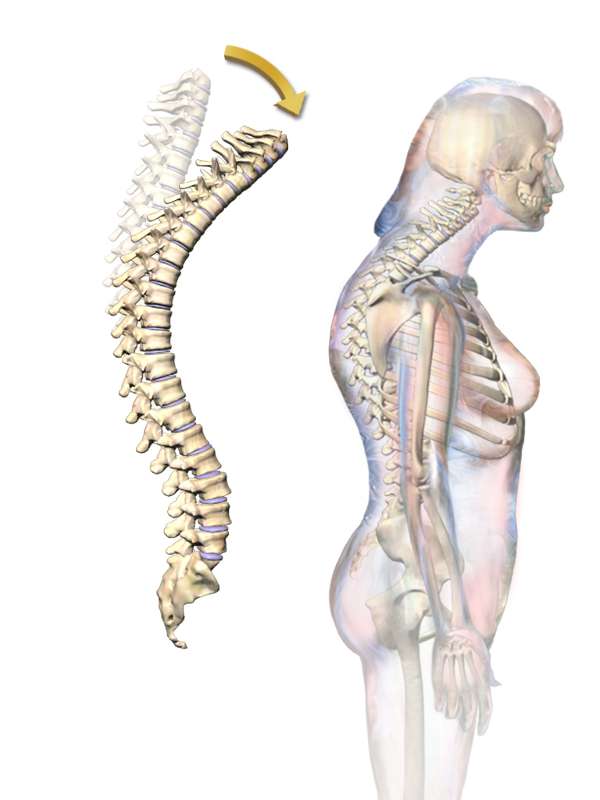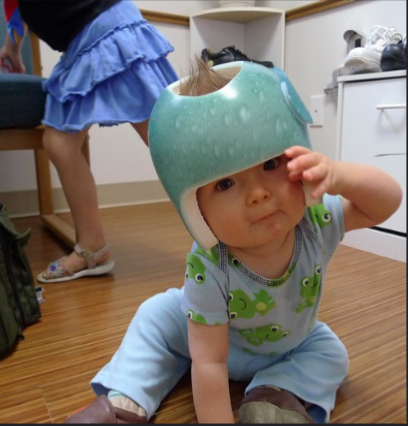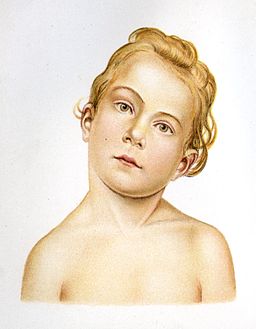Other Abnormal Spine Curves
Kyphosis

By BruceBlaus [CC BY-SA 4.0 (https://creativecommons.org/licenses/by-sa/4.0)], from Wikimedia Commons
- A rounded back posture (and protracted scapulae)
- Associated with osteoporosis and history of multilevel compression fracture; more severe deformities are generally idiopathic
- Exercise intervention principles are similar to scoliosis
- Strengthen muscles on the convex (lengthened side): spinal extensors and scapular retractors
- Stretch muscles on the concave (shortened side): scapular protractors and spinal flexors
Congenital Torticollis
- Cervical spinal curve characterized by contracture of the SCM musculature
- Characteristics include lateral flexion the same side as the contracture, rotation toward the opposite side, and facial asymmetries
- Etiology is unknown; pediatric screening around 2 days old for any limitations in cervical range of motion or emerging facial asymmetries. Diagnosis is typically made around 3 weeks of age
- Contributing factors:
- Malposition in utero
- Breech position in utero
- Birth trauma: traction to spinal nerve roots resulting in SCM palsy
- Clinical practice guidelines for physical therapy include:
- PT infant assessment of posture, ROM, pain behaviors, skin integrity, and craniofacial asymmetry. If cranial shape is a contributing, factor, the infant may be fitted with a custom cranial remodeling orthosis

https://www.flickr.com/photos/150hp/6271381480/in/photostream/
- neck PROM, trunk and neck AROM, symmetrical movement development
- KEY POINT: Family and caregiver education is critical. Parents should be given activities that promote opposing cervical motion, such as positioning, games, stretches, and positioning
- Children over the age of one may be eligible for surgical release of SCM if there has been limited response to conservative treatment
 http://upload.wikimedia.org/wikipedia/commons/5/53/Siebert_22_-_Torticolis.jpg
http://upload.wikimedia.org/wikipedia/commons/5/53/Siebert_22_-_Torticolis.jpg